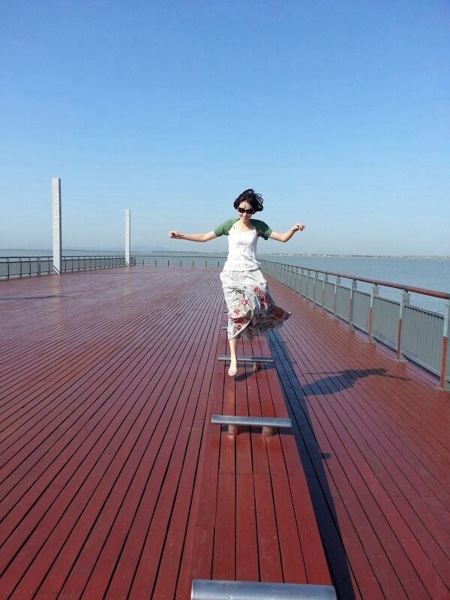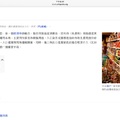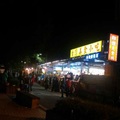

|
 |

|
文章數:66 |
 譯文:真正幸福的秘密 譯文:真正幸福的秘密 |
| 休閒生活|其他 2015/03/13 14:28:49 |
《真正幸福的秘密》
 很多聰明人把幸福等同於享樂。其實,享樂和幸福幾乎或根本沒有共同之處。享樂是我們在行為過程中的感受,幸福則是我們在行為結束後的感受。與享樂相比,它是一種更深刻,更持久的感受。
逛遊樂場或看球賽,看電影或看電視,這些都是一些享樂性的活動,能幫助我們放鬆、暫時忘卻煩惱,甚至還能讓我們開懷大笑。但它們並不能帶來幸福,因為活動結束時,它們的積極效果也會隨之消失。
人們堅持認為充滿樂趣、毫無痛苦的生活就等於幸福,這實際上卻剝奪了他們獲得真正幸福的機會。如果享樂和愉快等同於幸福,那麼,痛苦必定等同於不幸福。但是事實恰恰相反:很多時候,能夠帶來幸福的事情往往都伴隨著一定的痛苦。
結果,很多人都躲避那些實際上正是幸福之源的、需要付出艱苦努力的事情。他們害怕諸如結婚、撫養子女、成就事業、從事公益或慈善活動以及自我發展等不可避免帶來的痛苦。
問一個單身漢,為什麼即使他覺得越來越不滿足於約會卻還是拒絕結婚。如果他是個誠實的人,他就會告訴你他害怕承諾。因為承諾實際上相當痛苦的。單身生活充滿了樂趣、冒險和興奮。雖然婚姻生活也有這樣的體驗,但這些不是它最顯著的特徵。
同樣,一對夫婦選擇不要孩子是因為相對於略有痛苦的幸福,他們更喜歡沒有痛苦的享樂。他們可以隨時外出吃飯,到任何想去的地方旅遊,願意睡多晚就睡多晚。有小孩的夫婦如能睡上一晚的安穩覺或者能夠有一個三天的假期他們就會感到非常幸運。我還沒有見過哪位父母用「享樂」這個詞來相容撫養孩子。
但是決定不生孩子的夫婦永遠不會體驗到擁抱孩子或夜裡給孩子掖好被子時的愉悅心情。他們也永遠不會知道看著孩子長大或孫兒玩耍時所感受的那種快樂。
當然,我也喜歡做那些享樂的事情。我喜歡打短網牆球,喜歡和孩子(以及其他任何人)開玩笑、與妻子加深感情、在世上行善等----會給我帶來比享樂這最不持久的感覺更多的幸福。
理解和承認真正的幸福與享樂毫不相干是我們所能達到的最具有解放意義的認知之一。
它解放時間:現在我們可以把更多的時間花在能真正增進我們的幸福的活動上。
它解放金錢:購買無助於我們幸福的新車或時髦服裝現在似乎已沒有意義。
另外它還把我們從嫉妒的心態中解放出來:
我們現在明白,那些腰纏萬貫、魅力十足的人,那些我們認為總是如此享樂所以肯定幸福的人,實際上也許一點也不幸福。
我們一旦懂得享樂並不帶來幸福,我們就會開始一種截然不同的生活。其結果是真正地改變我們的生活。
原文:
The Secret of True Happiness
By Dennis Prager
I live in the land of Disney, Hollywood and year-round sun. You may think people in such a glamorous, fun-filled place are happier than others. If so, you have some mistaken ideas about the nature of happiness. Many intelligent people still equate happiness with fun. The truth is that fun and happiness have little or nothing in common. Fun is what we experience duringan act. Happiness is what we experience after an act. It is a deeper, more abiding emotion. Going to an amusement park or ball game, watching a movie or television, are fun activities that help us relax, temporarily forget our problems and maybe even laugh. But they do not bring happiness, because their positive effects end when the fun ends. I have often thought that if Hollywood stars have a role to play, it is to teach us that happiness has nothing to do with fun. These rich, beautiful individuals have constant access to glamorous parties, fancy cars, expensive homes, everything that spells "happiness." But in memoir after memoir, celebrities reveal the unhappiness hidden beneath all their fun: depression, alcoholism, drug addiction, broken marriages, troubled children, profound loneliness. Yet people continue to believe that the next, more glamorous party, more expensive car, more luxurious vacation or fancier home will do what all the other parties, cars, vacations and homes have not been able to do. The way people cling to the belief that a fun-filled, pain-free life equals happiness actually diminishes their chances of ever attaining real happiness. If fun and pleasure are equated with happiness, then pain must be equated unhappiness. But, in fact, the opposite is true: More times than not, things that lead to happiness involve some pain. As a result, many people avoid the very endeavors that are the source of true happiness. They fear the pain inevitably brought by such things as marriage, raising children, professional achievement, religious commitment, civic or charitable work and self-improvement. Ask a bachelor why he resists marriage even though he finds dating to be less and less satisfying. If he's honest, he will tell you that he is afraid of making a commitment. For commitment is in fact quite painful. The single life is filled with fun, adventure, excitement. Marriage has such moments, but they are not its most distinguishing features. Similarly, couples who choose not to have children are deciding in favor of painless fun over painful happiness. They can dine out whenever they want, travel wherever they want and sleep as late as they want. couples with infant children are lucky to get a whole night's sleep or a three-day vacation. I don't know any parent who would choose the word fun to describe raising children. But couples who decide not to have children never experience the pleasure of hugging them or tucking them into bed at night. They never know the joys of watching a child grow up or of playing with a grandchild. Of course I enjoy doing fun things. I like to play racquetball, joke with kids (and anybody else), and I probably have too many hobbies. But these forms of fun do not contribute in any real way to my happiness. More difficult endeavors -- writing, raising children, creating a deep relationship with my wife, trying to do good in the world -- will bring me more happiness than can ever be found in fun, that least permanent of things. Understanding and accepting that true happiness has nothing to do with fun is one of the most liberating realizations we can ever come to. It liberates time: now we can devote more hours to activities that can genuinely increase our happiness. It liberates money: buying that new car or those fancy clothes that will do nothing to increase our happiness now seems pointless. And it liberates us from envy: we now understand that all those rich and glamorous people we were so sure are happy because they are always having so much fun actually may not be happy at all. The moment we understand that fun does not bring happiness, we begin to lead our lives differently. The effect can be, quite literally, life-transforming. |
| 最新創作 |
|
||||
|
||||
|
||||
|
||||
|
||||
| 精選創作 |
|
||||
|
||||
|
||||
|
||||
|
||||
| 最新影像 | 2 本 23 張 |
|
|
|
|||||||||







